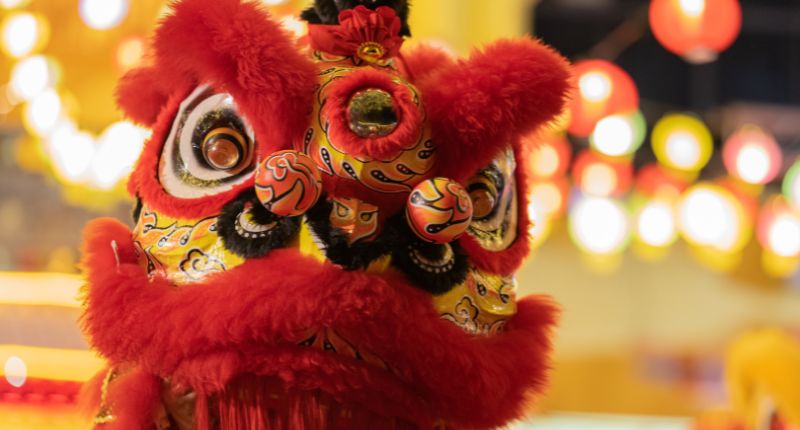
- In some cases, the gifting of red packets extends to helping the next generation into their own homes.
- The Lunar New Year was previously one of the most important times of the year for property purchases.
- Buyers may insist on specific times and dates for the signing of contracts for auspiciousness.
The Lunar New Year in 2024 falls on Saturday the 10th of February, and that has deep implications for the real estate market.
Personally, I’ll be celebrating the arrival of the Year of the Dragon by feasting with friends and family. There will be other celebrations all across Australia. In Sydney, you can watch jetpack dragons. In Perth, you can join 35,000 others in attending the Chinese New Year Fair. While in Brisbane you can celebrate at one of the Valley’s top Asian restaurants and enjoy street performances of traditional lion and dragon dances.
When it comes to real estate, Australians have long known the Lunar New Year as one of the most important periods in the calendar for Chinese property purchases. That’s not as true in the post-Covid era as it used to be, but we still expect to see many contracts signed.
Here I want to share with you some of the cultural nuances that could play a critical role.
Feng shui
Chinese buyers often consider Feng Shui when purchasing property. They might prefer properties with certain orientations, layouts, or locations that are believed to bring good fortune.
Feng Shui may sound like superstition, but modern science has borne out the fundamental truth that the shape and finish of rooms can have a powerful effect on the people using them.
Leading researchers are redesigning hospitals using principles very similar to Feng Shui, so that the patients using them recover more quickly.
When it comes to property buyers from Asia, the traditional practice of Feng Shui is most popular with the older generation that grew up with it. But well-to-do, young, urban families are now embracing it, as well. They seek to balance out their intensely modern and fast-paced lives with some traditional wisdom. That means Feng Shui is as important as ever in the real estate market.
This traditional wisdom goes beyond the shape of a space, and also includes the timing of property transactions. We regularly participate in transactions in which the buyer insists on a particular time and date to sign the contract. Before finalizing a property purchase, some buyers might consult astrologers or Feng Shui masters to ensure that the proposed schedule is auspicious.
Lucky numbers
That leads us to numerology. Numbers play a significant role in Chinese and other Asian cultures, with some numbers (like 8) considered lucky due to their phonetic similarity to words meaning prosperity or wealth. Buyers might favour properties with addresses containing these numbers.
Other numbers are avoided, like the number 4, which sounds like the word for death in Chinese. In China, buildings don’t have a fourth floor, just as in Australia it’s uncommon to see a 13th floor.
Gifting traditions
During Chinese New Year, it’s customary to give and receive red envelopes (hóngbāo) with money. This practice can extend to property transactions. Chinese parents consider it a duty to help their children get established in their own home, financially if necessary.
This highlights that decision-making in property buying is often a family affair. The opinions of one’s elders are particularly respected. Family harmony is considered essential in the process.
Property blessing ceremonies
After purchasing a property, some Chinese buyers might hold a blessing ceremony to cleanse the space and bring positive energy, often involving traditional rituals and prayers.
Preference for new developments
Buyers from China and indeed other parts of Asia often prefer new properties, rather than second-hand homes. Newly built property is seen as having better Feng Shui and free from the previous owners’ history and energy.
On the practical side, buying new can also give the buyer the chance to customize their home in ways that would be more expensive and time-consuming than an existing home.
When I think of the Lunar New Year, I am reminded of the rich and deep cultures of China and its Asian neighbours. These are just a few of those traditions, and the ones that I believe will have the biggest impact on the property market in 2024. I hope you have found this interesting.




